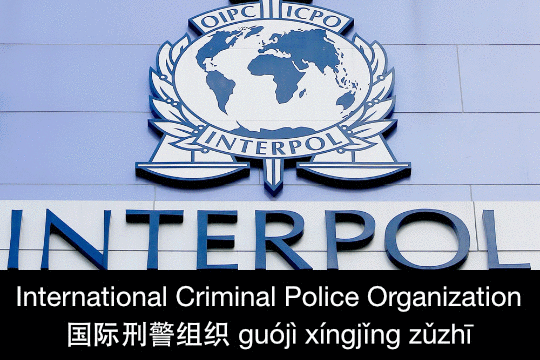China promises stronger support for international police organization – China’s latest top news
Jeremy Goldkorn’s selection of the top stories from China on September 26, 2017. Part of the daily The China Project newsletter, a convenient package of China’s business, political, and cultural news delivered to your inbox for free. Subscribe here.

- The organization is holding its 86th general assembly from September 26 to 29 in Beijing, presided over by current Interpol president Meng Hongwei 孟宏伟, who is vice minister of public security in China.
- The event is the top story on all Chinese central state media today, with coverage focusing on a speech by Xi Jinping (see complete Chinese transcript). Most of the speech consisted of bromides about cooperation to fight terrorism and crime. He also said that “more and more people believe China is one of the most secure countries in the world, which is an important contribution China has made to the world.”
- Xi also promised stronger support for Interpol “to raise its global influence and leadership.”
Reuters notes that many observers are suspicious of China’s motives, particularly when it comes to “red notices,” which are requests from member countries to other Interpol members to provisionally arrest suspects pending extradition.
- Red notices are not international arrest warrants, and member countries are free to ignore them. Nonetheless, Reuters says that “China has attracted criticism from rights groups” for using red notices to target “in particular exiled Uighurs from Xinjiang,” and accuse them of terrorism.
- Another controversial Chinese use of a red notice was a request for the arrest of outspoken, exiled tycoon Guo Wengui 郭文贵, whom the Chinese government has accused of fraud and rape.
- The South China Morning Post says China is “involved in about 3,000 investigations currently being handled through the global police cooperation agency.”
Movie business: Meet the 19th Party Congress
Feng Xiaogang 冯小刚 is one of China’s most popular directors who has had multiple box offices hits with comedies, period films, and dramas. His latest is Youth 芳华, which tells the story of a young woman in a military dance troupe against the background of the Cultural Revolution (1966–76) and China’s brief war with Vietnam in 1979. Youth was supposed to premiere in China this week, but its screening was canceled, or postponed, by the authorities with no reason given.
- The New York Times has a good roundup (paywall) of the story, and notes that the censorship of the film was surprising to many because Feng “has learned to work within, and sometimes adroitly nudge against, China’s heavy boundaries of censorship.”
- On Chinese social media, some commenters speculated that Feng may have orchestrated the cancellation as a promotional stunt, but this was denied by Feng’s production company, and is highly unlikely anyway because there is no upside to delaying the film’s release.
- There were many comments on social media that were highly critical of the cancellation — many of these have been deleted.
- The most likely cause of the premiere’s cancellation is the general paranoia of the government about anything that might disrupt the Communist Party’s upcoming 19th congress.
- There’s a trailer for Youth on YouTube.
Censorship of Chinese art in New York
The Guardian reports that “New York’s Guggenheim Museum will remove three art pieces from an upcoming show” of contemporary Chinese art.
- The three pieces are by controversial husband and wife duo Peng Yu 彭禹 and Sun Yuan 孙原; two of the works are videos featuring live animals, and one is a sculpture that includes live insects and lizards.
- Peng and Sun’s earlier works include art made from animals, blood, dead fetuses, and human fat extracted by liposuction.
- The Guggenheim withdrew the works after what it described as “explicit and repeated threats of violence,” presumably from animal rights activists.
The brief flowering of a Uyghur mother group on WeChat
Women and Gender in China has published a short article on a WeChat discussion group for mothers from the Muslim Uyghur minority group. The group’s aim was to “gather Uyghur women in China and abroad into WeChat groups to discuss their different experiences in order to transform the ‘mothers who raise’ into ‘mothers who educate.’” The group flourished from 2014 until 2016, when ongoing clampdowns on online activities in far western Xinjiang put an end to it.
Steel and the environmental conundrum
One of the Chinese government’s most intractable challenges is balancing economic development with protecting the environment. Two Bloomberg headlines capture the problem perfectly:






